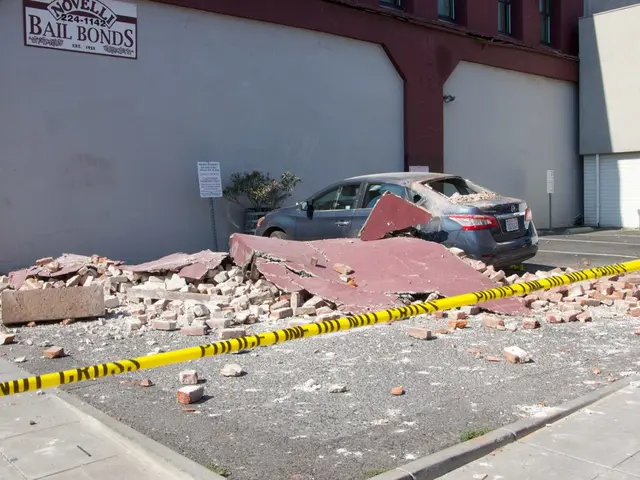Santana Minerals wins 30-year gold mining permit amid fierce environmental backlash
Australian mining company Santana Minerals has secured a crucial permit for its vast gold mine near Cromwell in Central Otago. The 30-year mining permit, granted by New Zealand Petroleum & Minerals, is a significant step towards the Bendigo-Ophir Gold Project. Resources Minister Shane Jones has congratulated the company, highlighting the potential benefits of the mine.
The permit sets out a royalty for Matakanui Gold, Santana Minerals' New Zealand subsidiary, either 10% of profits or 2% of gold sales. This is expected to average $32 million per year. The project, if approved, involves carving out a large open pit and three smaller satellite pits, plus a tailings dam. Santana Minerals' CEO Damien Spring has hailed the permit as a 'landmark achievement', reflecting confidence in the project's quality and integrity.
However, not everyone is pleased with the news. Some Central Otago locals oppose the mine, expressing concerns about potential harm to existing industries and the environment. Actor Sam Neill has also criticized the project, describing it as 'toxic' and an environmental catastrophe. Despite these concerns, Santana Minerals has lodged a fast-track application for environmental and development consents, with the mining permit being one of the two key approvals needed to start work on the mine.
With the mining permit secured, Santana Minerals moves closer to its goal of developing the Bendigo-Ophir Gold Project. Minister Jones has praised the project's potential benefits, including employment, infrastructure investment, and royalties. Yet, the project's future remains uncertain, pending the outcome of the environmental and development consent process, and ongoing public debate.
Read also:
- American teenagers taking up farming roles previously filled by immigrants, a concept revisited from 1965's labor market shift.
- Weekly affairs in the German Federal Parliament (Bundestag)
- Landslide claims seven lives, injures six individuals while they work to restore a water channel in the northern region of Pakistan
- Escalating conflict in Sudan has prompted the United Nations to announce a critical gender crisis, highlighting the disproportionate impact of the ongoing violence on women and girls.






